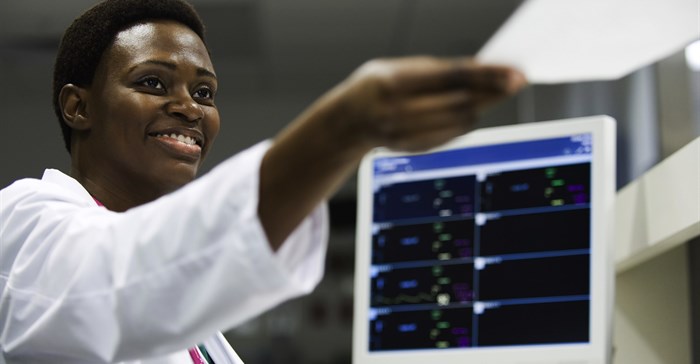
Top stories




Energy & Mining#Budget2026: 600 Transalloys jobs at risk if power price cut isn't announced
5 minutes


More news

























The continent faces its own unique challenges, with most of the population still living in poverty, a lack of adequate government funding, inefficient pharmaceutical supplies and distribution and a shortage of professional healthcare skills and infrastructure.
Not only is communicable disease still a major issue in Africa, non-communicable disease is fast on the rise with the ever-growing middle class.
Healthcare stakeholders including doctors, patients, pharmaceuticals and medical laboratory often do not have access to the right information at the right time to effectively drive proactive management, tracking and monitoring of Africa’s health.

To deliver continued improvements to Africa's beleaguered healthcare environment, healthcare has to be holistically transformed, with technology and digitisation playing a vital role.
Like the rest of the world, Africa will undoubtedly benefit from a healthcare network that efficiently connects patients, doctors, health insurance, pharmaceutical, pathology labs and governments.
This vision is no mean feat. It would require significantly changing how healthcare services are provided with the goal of having a complete digitised patient record.
A complete personalised patient record which consolidates clinical and administrative data in a single integrated place requires an investment in healthcare technology, resources, skills and its usage.
Many healthcare facilities in Africa find it difficult to employ medically trained staff to cope with the high demands of patient care, because once trained many opt to work in other markets with better working conditions and salaries.
According to Charmaine Odendaal, healthcare industry lead at SAP Africa:, “Across the globe, healthcare facilities are faced with the challenge of escalating volumes of data, yet they have insufficient if not zero access to the medical insights that this data could provide in delivering accurate patient care."
"There is huge potential to change this scenario. A connected health platform has the capability to link quality clinical and patient information to produce medical insights that can be used for proactive patient care across healthcare facilities."
The search is still on for an ideal healthcare system that provides access to affordable, high-quality healthcare for all and Africa is not alone in this journey.
Healthcare technology is becoming a key enabler to solving the delivery of healthcare services - from chronic health monitoring, disease tracking and hospital administration, billing and managing medical supplies of equipment’s and drugs.
Africa needs a healthy population to grow its economy and overcome its many socioeconomic challenges and healthcare delivery should remain cost effective without compromising quality.
Through a connected health platform, patients and their doctors can contribute to shaping the healthcare industry in such a way that population health can be positively impacted.
With the adoption of innovation technologies such as mobile disease tracking, remote diagnoses of patients with the help of technology, clinical insights, integrated medical business process and connected healthcare network facilities software, Africa could deliver a quality and affordable patient care for all.